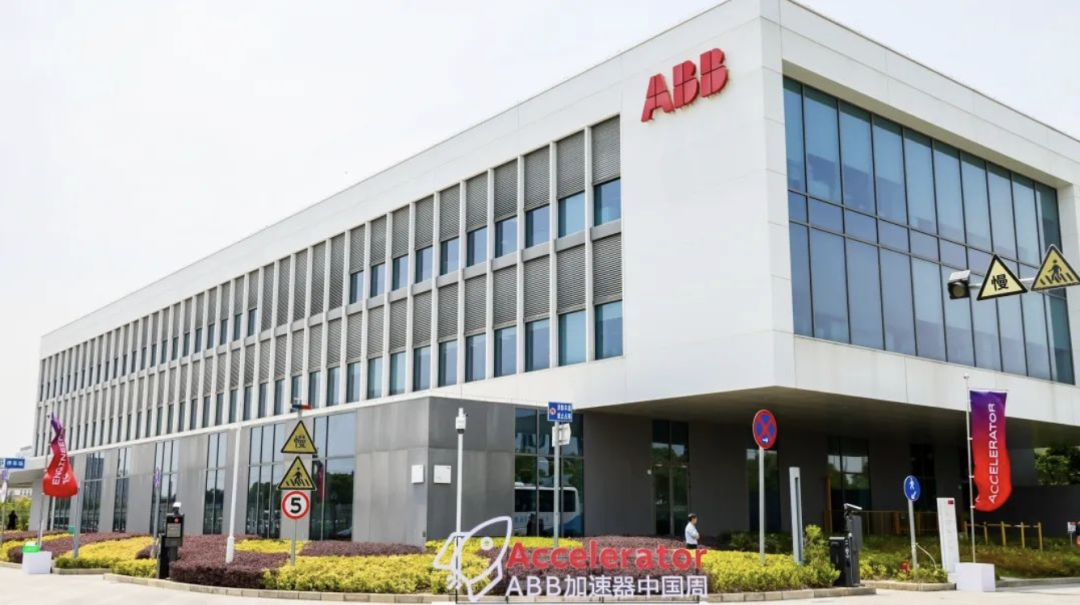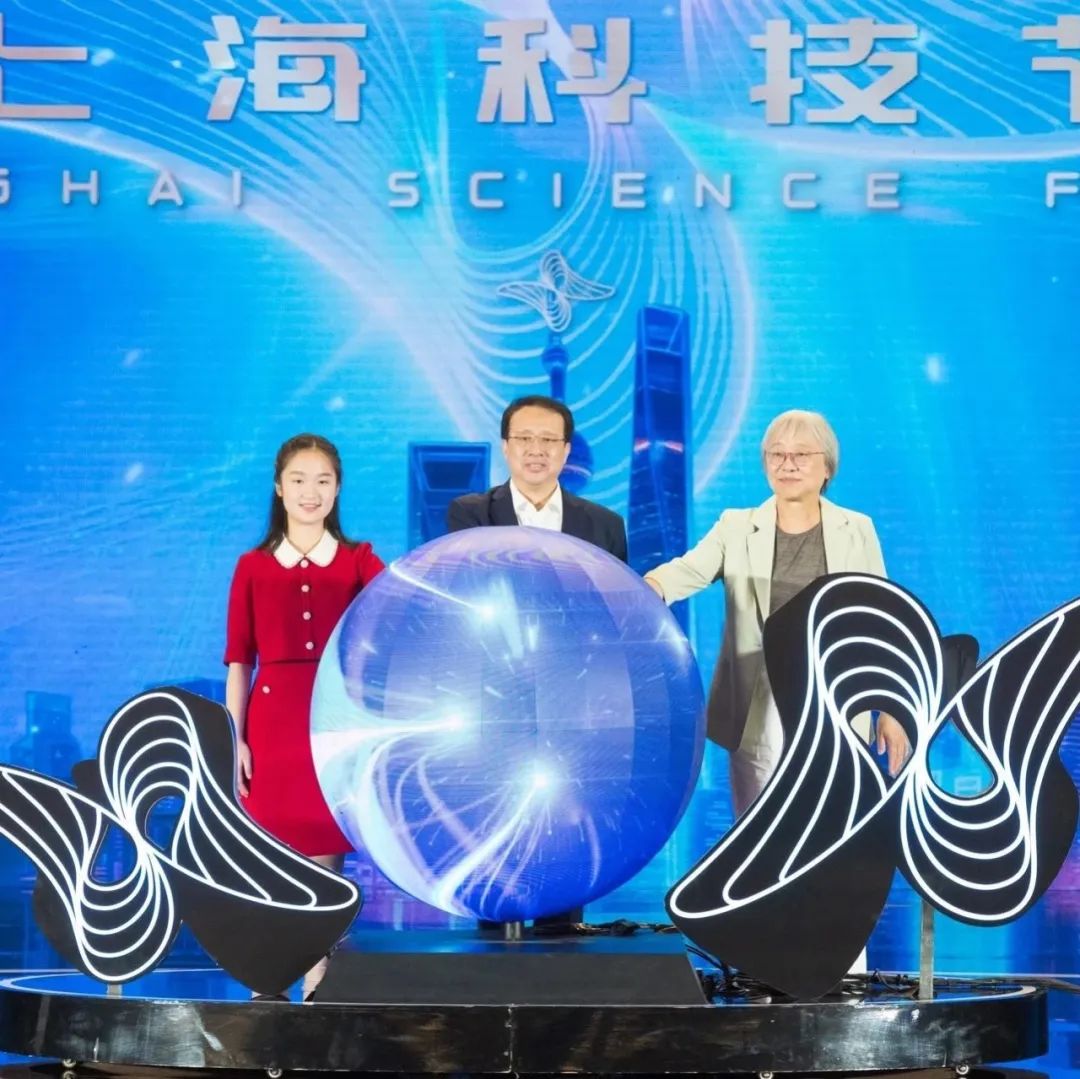
 At ABB’s super factory located in Zhangjiang Science City, a global leader in electrical and automation technology, robots trained through deep learning can more efficiently produce other robots on the assembly line. Over the past year, the success rate of robots screwing bolts has increased from around 20% to nearly 100%, a task that was previously almost entirely performed by humans.Currently, with the development of large models and generative AI technologies, AI has initiated a new wave of deep integration into various industries, particularly in manufacturing, where embracing AI is becoming a reality driven by leading companies. As a representative of this trend, ABB is also promoting the deep integration of AI with Chinese manufacturing, using Shanghai as a hub. Recently, during the AI innovation event – ABB Accelerator China Week, the company showcased over 40 AI application solutions, most of which originated from China.
At ABB’s super factory located in Zhangjiang Science City, a global leader in electrical and automation technology, robots trained through deep learning can more efficiently produce other robots on the assembly line. Over the past year, the success rate of robots screwing bolts has increased from around 20% to nearly 100%, a task that was previously almost entirely performed by humans.Currently, with the development of large models and generative AI technologies, AI has initiated a new wave of deep integration into various industries, particularly in manufacturing, where embracing AI is becoming a reality driven by leading companies. As a representative of this trend, ABB is also promoting the deep integration of AI with Chinese manufacturing, using Shanghai as a hub. Recently, during the AI innovation event – ABB Accelerator China Week, the company showcased over 40 AI application solutions, most of which originated from China.


AI Takes on Key Processes


“AI is not just a vision for the future; it has already become a reality.” said An Shiming, member of ABB’s Executive Committee and President of the Robotics and Discrete Automation Division. Over the past year, the number of ABB’s AI projects has more than doubled, now exceeding 250. Particularly in China, many new projects have emerged, driving further innovation and making products more efficient.
For instance, the Shanghai ABB Robot Super Factory, one of the largest and most advanced flexible factories globally, sees AI playing a crucial role in two key processes, one of which is screwing bolts for robot controllers. This production line includes approximately 30 types and over 1,000 models of equipment, making it very complex. Previously, screwing bolts was done manually until last year when ABB introduced deep AI technology, increasing the success rate from the traditional 20% reliant on image processing to 80%. After another year of optimization, AI’s adaptability and tolerance to different environments, lighting, and defective materials have significantly improved, achieving a near 100% success rate in screwing bolts.
The other process is weld seam quality inspection. Based on 3D rapid imaging, AI has increased the speed of weld seam detection to over 20 times that of manual inspection, with an accuracy of 22 microns. This efficiency allows the weld seam inspection process to be integrated into real-time processing, enabling “weld and inspect” capabilities, allowing for immediate repairs of any issues. Previously, inspection and repair could only occur at the end of production.
In addition to the front-line workshop, ABB is also using AI to solve problems in many other related areas. For example, in the past, product quotations involved numerous different motor models, requiring sales personnel to sift through hundreds of pages of documentation to find parameters, consuming a lot of time. Based on generative AI, ABB has developed a new reading tool in China that can extract the required information at three times the previous speed, automatically generating documents, thus significantly speeding up the sales process and greatly improving quotation accuracy.


China Can Generate Many AI Innovations


ABB’s AI strategy has significantly accelerated over the past year, largely benefiting from its factories in China. From a certain perspective, investments and operations in China provide ABB with numerous AI application scenarios, including critical data, which also spur advancements in its AI technology. As An Shiming stated, ABB’s AI innovations focus on solving real problems, so specific strategies are not designed and mandated by headquarters but are deeply rooted in the factory floor. “AI innovation should come from those who discover the problems and get as close to the customers as possible. In fact, we previously tried a ‘top-down’ approach but quickly found it ineffective. So now we adopt a decentralized, ‘bottom-up’ model.”
Embracing AI and embracing China is not only reflected in the Shanghai factory; in fact, ABB is striving to build an open AI ecosystem in China. On one hand, they use the Shanghai factory as a testing ground and incubator for AI innovation, continuously improving technology until it matures, and then providing it to Chinese customers. Currently, their AI solutions have received positive feedback in many fields, including metallurgy, heating, data centers, consumer goods manufacturing, and medical devices. On the other hand, they also collaborate with local research institutions, including universities, to advance the development of core AI technologies. For example, last year ABB proposed a topic on how to use AI for fault diagnosis of motor frequency converters, attracting nearly 300 participants from over 50 universities, ultimately leading to a breakthrough by a team from Xi’an Jiaotong University using a highly creative algorithm. This progress has given ABB great confidence to further strengthen cooperation with innovative talents in China. In fact, during the recent China Week event, they also held an AI hackathon competition, resulting in about 350 AI innovation proposals.
An Shiming emphasized that the Chinese market is enormous, especially the robot market, which accounts for over 50% of the global share and is still growing. At the same time, represented by DeepSeek, China’s AI innovation capabilities are also quite remarkable. Therefore, ABB has formulated an AI strategy of “In China, for China,” which will promote more technologies and products to be developed and implemented in China. This not only helps the company better seize opportunities in the Chinese market but also provides important insights and references when choosing AI innovation directions.
Source: Wenhui DailyReviewed by: Liu GuangyaoEdited by: Mei Jie

Previous Issues


Regarding the deepening of the construction of the Shanghai International Science and Technology Innovation Center, the Municipal Party Committee’s Central Group Study Meeting listened to a special report.
2025-05-21

The 2025 Shanghai Science and Technology Festival has opened! Gong Zheng, along with representatives from the scientific community and youth, jointly launched the event.
2025-05-18

With the power of scientific innovation, paving the way for a “new” path! The opening ceremony of the 2025 Shanghai Science and Technology Festival was grandly launched in Zhangjiang Science City!
2025-05-17

